
Duration
14 Nights
Journey Type
Cruise only (Please call for flight options)
Ports
13 Ports
11-12 May
Setting sail from Amsterdam
Amsterdam is one of our very favourite cities to visit, and comes alive with vibrant spring colours during tulip season. The Amsterdam canal belt is now officially recognized as a UNESCO World Heritage site, and from them there are so many neighbourhoods to explore, such as the Jordaan with its higgledy-piggledy streets and its famed garden courtyards (hofjes). There are also a wealth of famous museums and galleries to choose from, such as the Van Gogh Museum, the Rijksmuseum and the Anne Frank House, not to mention some more, shall we say, quirky options.

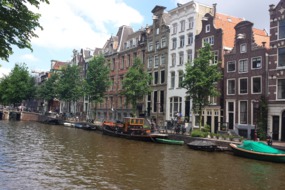
Don't miss
The quaint cobbled streets that straddle Amsterdam’s grandest canals, known as De Negen Straatjes, are awash with history and contain some of the most unique shops in the city.
13 May
Germany: Cologne

Cologne is a wonderfully warm and welcoming city, its skyline dominated by one of the most beautiful Gothic cathedrals in Europe. You will likely spend most of your time in the attractive Altstadt (Old Town), home to beer halls aplenty and some fascinating museums.
14 May
Germany: Rüdesheim

The pretty little town of Rüdesheim, situated on a bend in the Rhine surrounded by vineyards, is a popular destination for travellers looking for a slice of quintessentially German village life. The Drosselgasse, a narrow cobbled lane flanked by old timber frame buildings, is particularly atmospheric.
15 May
Germany: Miltenberg

The quaint little Bavarian town of Miltenberg sits on the Main river to the southeast of Frankfurt, with a beautiful old town that survived the Second World War unscathed. Timber-framed buildings lean at jaunty angles overhead, not least in the ‘Black Quarter’, where the streets are so narrow that the sunlight barely reaches ground level.
16 May
Germany: Würzburg
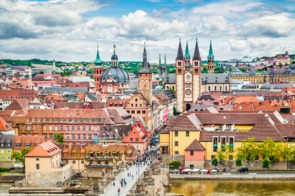
The handsome town of Würzburg, situated on the river Main between Nuremberg and Frankfurt, was ruled for centuries by a succession of powerful prince-bishops. Although much of the city was destroyed during the Second World War, the majestic 18th century Residenz palace stands as a testament to the wealth of the bishopric.
17 May
Germany: Bamberg

Bamberg’s eye-catching, UNESCO-listed old town is one of the most beautiful in all of Germany. The city was briefly capital of the Holy Roman Empire, and the city centre is still dominated by the 13th century cathedral. There are also plenty of breweries, and you shouldn’t leave without trying Bamberg’s famous smoked beer.
18 May
Germany: Nuremberg

Nuremberg, Bavaria’s second city, first pops up in the history books in 1050 as a stronghold of the Franks, and later became the unofficial capital of the Holy Roman Empire. Nowadays the city is a tourist magnet thanks to the beautifully restored old town, Christmas markets and excellent beer.
19 May
Germany: Regensburg

Originally founded by the Celts and later an important Roman settlement, Regensburg is one of Bavaria’s lesser known gems. Situated on the northernmost bend of the Danube, it’s a friendly and laid back city, with an exceptionally well preserved medieval centre.
20 May
Germany: Passau

The pretty Bavarian town of Passau, situated close to Germany’s border with Austria, enjoys a unique setting at the confluence of three rivers: the Inn, the Ilz and the Danube. The narrow cobbled streets of the handsome old town, the Altstadt, are quite delightful.
21 May
Austria: Melk

The riverside village of Melk is best known for its spectacular abbey, a Baroque masterpiece that dominates the landscape. A Benedictine abbey was first established here in 1089, and the 18th century reconstruction that you can see today is still a working monastery.
22 May
Austria: Vienna
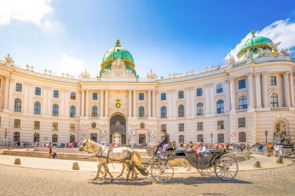
Formerly the centre of the Habsburg Empire, Vienna is as grand a European capital as you can imagine, jam packed full of thrusting, bombastic buildings that stand as a reminder of Austria’s glorious imperial heyday.
23 May
Slovakia: Bratislava

Bratislava, Slovakia’s quaint little capital, straddles the Danube close to the border with Austria and Hungary. The compact old town is the best place to begin your exploration, before heading up to the hilltop castle for commanding views of the city and surrounding countryside.
24-25 May
Arriving in Budapest
Budapest is one of Eastern Europe's most appealing cities, a vibrant and welcoming capital that straddles the Danube. The history of Budapest has been somewhat turbulent - ransacked by the Mongols in 1241, occupied by the Ottoman Turks for over a century, and almost flattened by the Soviets in 1945 - but plenty of older buildings survive, including the imposing Parliament and iconic St Stephen's Basilica. Although a pedant might point out that Budapest has only really existed since 1873; up until then the city's two distinct halves, Buda and Pest, were separate towns.


Don't miss
If you are a music lover, you can’t miss a performance at the Opera House – affordable, and great music in a wonderful building.
Your home from home
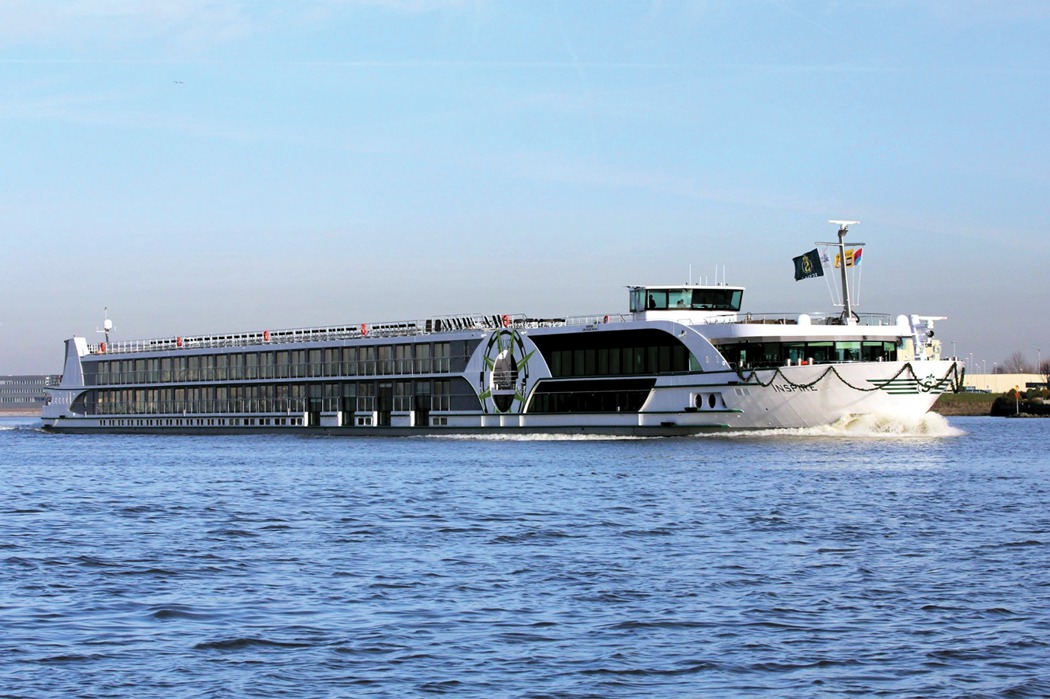


What we love
Rich woods are complimented by muted tones, giving these ships an airy and luxurious feel. The alternative restaurant with outside seating at the rear is an idyllic place for a relaxed lunch as you cruise to your next call and the regional cuisine served in the Dining Room is excellent.
| Capacity | 130 Guests |
|---|---|
| Staff | 43 International Staff |
| Style |
Active days followed by sophisticated evenings. |
| Inclusions |
|
| Length | 443 feet |
Tailor-make your trip
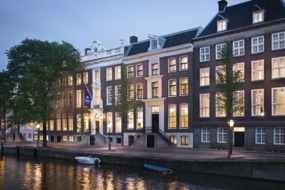
Two nights in Amsterdam
There is a fantastic range of canal front hotels to choose from, but we love the new Waldorf Astoria.
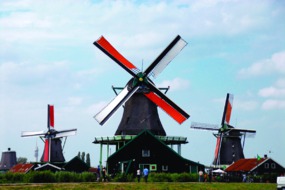
Around Amsterdam
Visit windmills in Zaanse Schans, the flowers at Keukenhof, or the cheese market in Alkmaar.
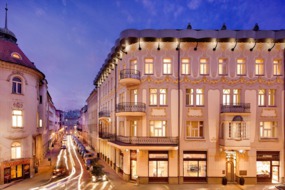
Our favourite hotel in Budapest
We like the Hotel Palazzo Zichy on the Pest side of the river, which used to be the residence of Count Nándor Zichy.

A taste of Hungary
If you’re a wine lover, you really should visit the world’s oldest classified wine region, known for its sweet Tokaji aszú dessert wine.











